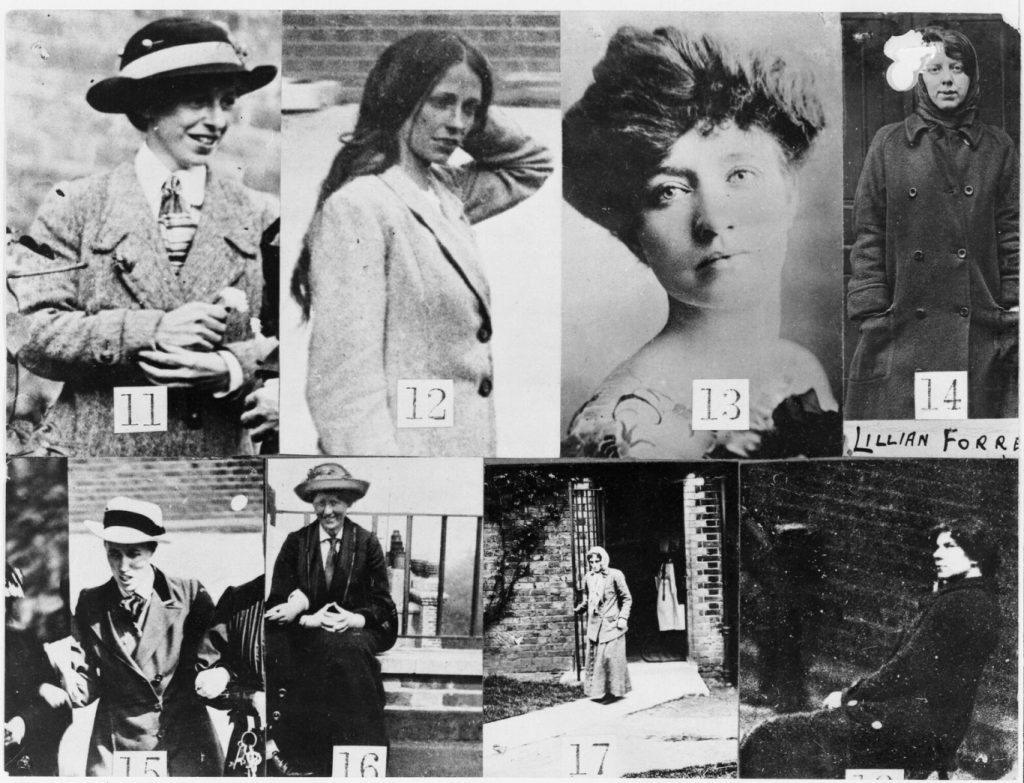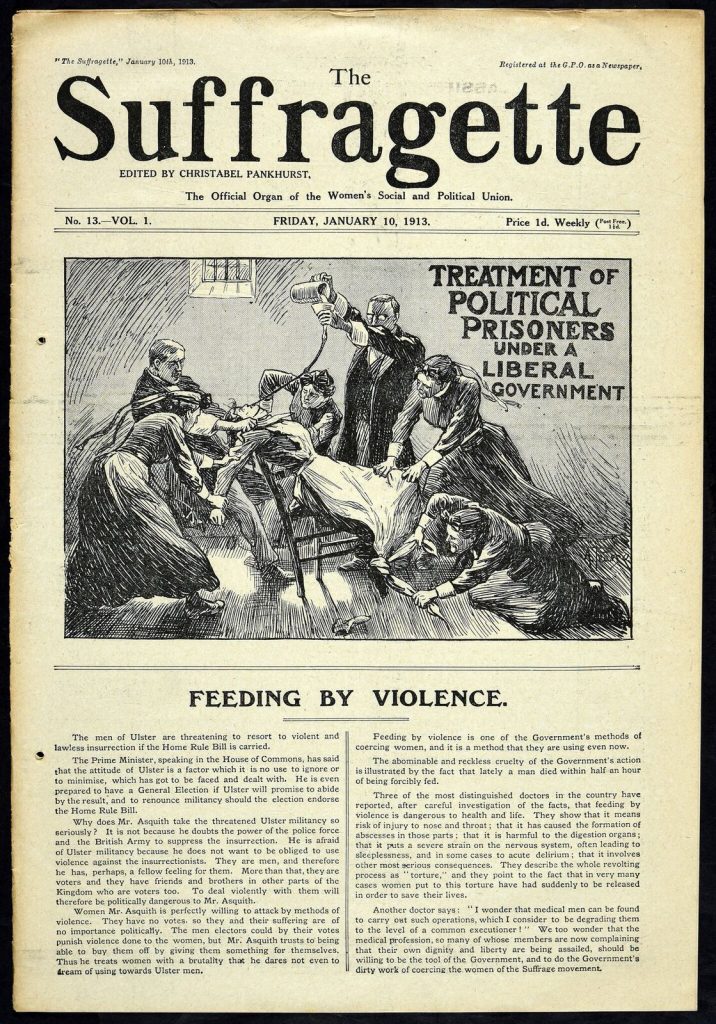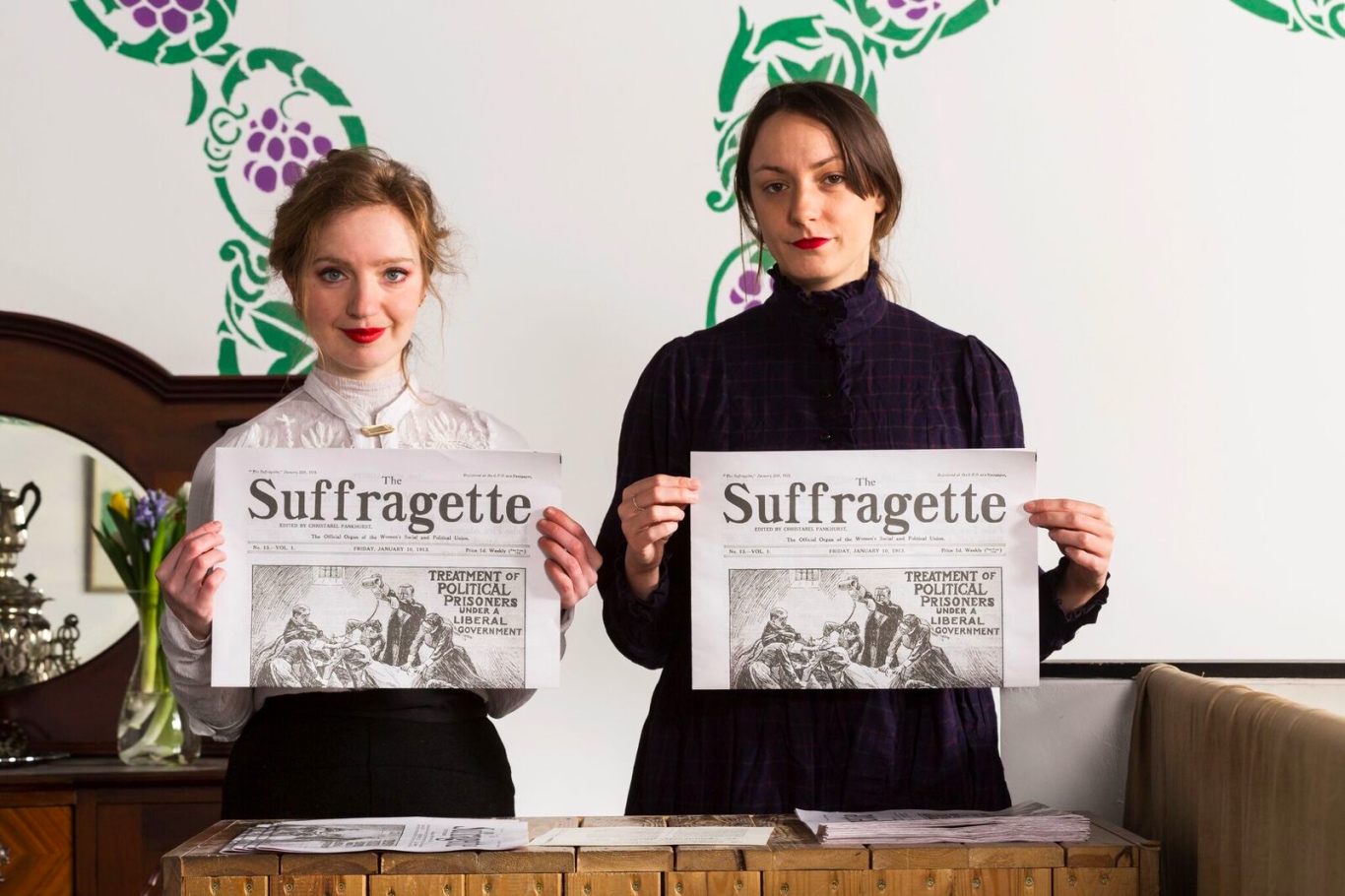It’s February 1912, and Lillian Ball – a working class dressmaker and mother-of-three from Tooting – has just received a letter from Emmeline Pankhurst. Having spent the last few years in the Women’s Social and Political Union (WSPU), Lillian is familiar with the suffrage movement, however, the morning’s post brought with it a significant change in stakes – she’d been called to take more militant steps in her pursuit of equality.
Alongside hundreds of other women, Lillian tentatively decides to take up the offer, volunteering her services in a window-smashing campaign in London’s West End. Charged with the slogan “better broken windows than broken promises,” Lillian makes her way to the Gardenia restaurant, a hub of suffragette activity in Covent Garden – and this is where we enter the loop.
In a replica of this restaurant – all striped in the purples and greens of the women’s movement – the National Archives and National Trust have just launched an immersive reconstruction of Lillian’s experience to mark 100 years since the partial granting of women’s suffrage.
Upon entry into the faux-Gardenia, which has been set up in Piccadilly Circus, participants are posed with the exact question uttered to Lillian on that night: “Do you want a long or short prison sentence?”
LOCAL ADVERTISING

From here, expect to be whisked through to secret underground WSPU Headquarters, hurtled into Piccadilly Circus station, swooped away by undercover policemen, chaperoned through interrogation rooms, prison cells and tea rooms by a mix of friends and foes of your cause. All of this is in an attempt to demonstrate, in the most visceral way possible, the tough predicaments the suffragettes were placed in.
Informed by hundreds of records from the National Archives – including Home Office, police and cabinet papers, as well as pamphlets and letters seized during raids – the project is a trail through the militant wing of the movement for women’s suffrage.
“The more militant the campaign, the more government and police surveillance,” says Rowena, who has spent the last year ploughing through the National Archives’ heaving resources on the topic.
“We wanted to demonstrate who the suffragettes really were,” she says, “by telling the stories of working-class women who faced very difficult choices. Take Lillian, who ended up testifying against Emmeline Pankhurst during the infamous conspiracy trials because the police threatened to take her four-year-old son away. Unlike a lot of the other women in the WSPU she had a job and dependents; and it is in this context that the audience is plunged into the movement.”
She points to a speech given by Emmeline Pankhurst in Feb 1913 in which she states, “I want you, not to see these as isolated acts of hysterical women, but to see that it is being carried out with a definite intention and purpose.”
Rowena’s work in the Archives has clearly shown that “these weren’t remote acts, rather, they part of a well-orchestrated, well-planned campaign involving a huge network of supporters from all across the country, from all different walks of life, both male and female,” she says.

Suffragette City has been put together by the same folks behind last year’s brilliant recreation of Soho’s 1930s queer-friendly Caravan Club. While they managed to set the nightclub up a mere hundred yards from the actual venue, they have upped their game this year by launching their recreation in the London Pavilion. This was a key site for suffragette activity, a principal meeting spot and where Pankhurst was frequently arrested for her advocacy.
“Working in the spaces that were actually used was one of our prerequisites for this project,” says National Trust’s Joseph Watson, “we could do this in a warehouse in the East End, but doing it in the actual location has that authenticity and that connection that is so important for us.”
Considering the success of the Caravan Club, the team are aware of how effective these experiences can be. “This project is about bringing historical events to life in a way that strolling around a museum never could,” says actor Ralph Bogard. “By allowing people to see the spaces and live through the events themselves, they are able to compare their lives’ and appreciate how much people suffered to get us to where we are today,” he says.
Depending on the choices made, it could be an hour of learning jujutsu, painted messages on rocks while sipping Edwardian milk punch, surveying the local area, deciphering encrypted codes or, for the more intrepid amongst us, locked in the gloom by the Old Bill.
How militant you’re willing to be will determine your path. Question is, how far would you go?



